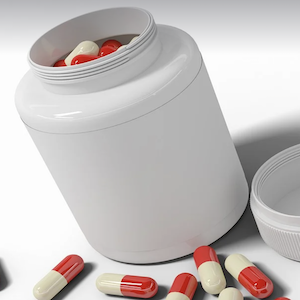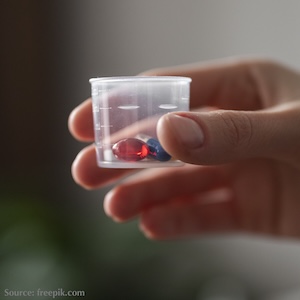Original Articles
Vol. 2 No. 4 (2023)
Influence of emicizumab on protein C-mediated clotting regulation

Publisher's note
All claims expressed in this article are solely those of the authors and do not necessarily represent those of their affiliated organizations, or those of the publisher, the editors and the reviewers. Any product that may be evaluated in this article or claim that may be made by its manufacturer is not guaranteed or endorsed by the publisher.
All claims expressed in this article are solely those of the authors and do not necessarily represent those of their affiliated organizations, or those of the publisher, the editors and the reviewers. Any product that may be evaluated in this article or claim that may be made by its manufacturer is not guaranteed or endorsed by the publisher.
Received: 20 July 2023
Accepted: 21 September 2023
Accepted: 21 September 2023
2244
Views
378
Downloads
Similar Articles
- Roger Lijnen, Désiré Collen, The key to fibrinolysis and thrombolysis , Bleeding, Thrombosis and Vascular Biology: Vol. 4 No. 3 (2025)
- PO77 | The clinical awareness of mixing test interpretation in the era of complex reporting algorithm: do we forget the origins? , Bleeding, Thrombosis and Vascular Biology: Vol. 4 No. s1 (2025)
- Alice Lipari, Esmeralda Capristo, Antonietta Ferretti, Erica De Candia, Anticoagulation in obese patients: challenges and strategies , Bleeding, Thrombosis and Vascular Biology: Vol. 4 No. 3 (2025)
- Renato Marino, Silvia Linari, Marzia Leotta, Antonio Coppola, Chiara Biasoli, Maria Elisa Mancuso, Flora Peyvandi, Cristina Santoro, Ezio Zanon, Rita Carlotta Santoro, Diagnostic and management practices for inherited fibrinogen disorders: a nationwide survey of Italian Hemophilia Treatment Centers , Bleeding, Thrombosis and Vascular Biology: Vol. 4 No. 3 (2025)
- Silvia Linari, Renato Marino, Marzia Leotta, Antonio Coppola, Patrizia Di Gregorio, Augusto Bramante Federici, Flora Peyvandi, Cristina Santoro, Ezio Zanon, Rita Carlotta Santoro, The landscape of rare coagulation factor deficiency management in Italy: a national hemophilia center survey , Bleeding, Thrombosis and Vascular Biology: Vol. 4 No. 3 (2025)
- Daniela Tormene, Elena Campello, Chiara Simion, Anna Poretto, Paolo Prandoni, Paolo Simioni, Combined oral contraceptives and the risk of venous thromboembolism carriers of antithrombin, protein C or S deficiency: Sub-analysis of a prospective cohort study , Bleeding, Thrombosis and Vascular Biology: Vol. 1 No. 3 (2022)
- Stefano Lancellotti, Monica Sacco, Maira Tardugno, Antonietta Ferretti, Raimondo De Cristofaro, The von Willebrand factor-ADAMTS-13 axis: a two-faced Janus in bleeding and thrombosis , Bleeding, Thrombosis and Vascular Biology: Vol. 1 No. 1 (2022)
- CO15 | Longitudinal coagulation profiling of individuals undergoing gender-affirming hormone therapy: the hyper-gender study , Bleeding, Thrombosis and Vascular Biology: Vol. 4 No. s1 (2025)
- PO64 | A silent hemorrhage in the immuno-thrombotic chaos of antiphospholipid syndrome , Bleeding, Thrombosis and Vascular Biology: Vol. 4 No. s1 (2025)
- Mattia Galli, C. Michael Gibson, Dominick J. Angiolillo, Factor XI inhibitors in adjunct to antiplatelet therapy: the ultimate dual-pathway inhibition? , Bleeding, Thrombosis and Vascular Biology: Vol. 2 No. 3 (2023)
1-10 of 209
Next
You may also start an advanced similarity search for this article.










